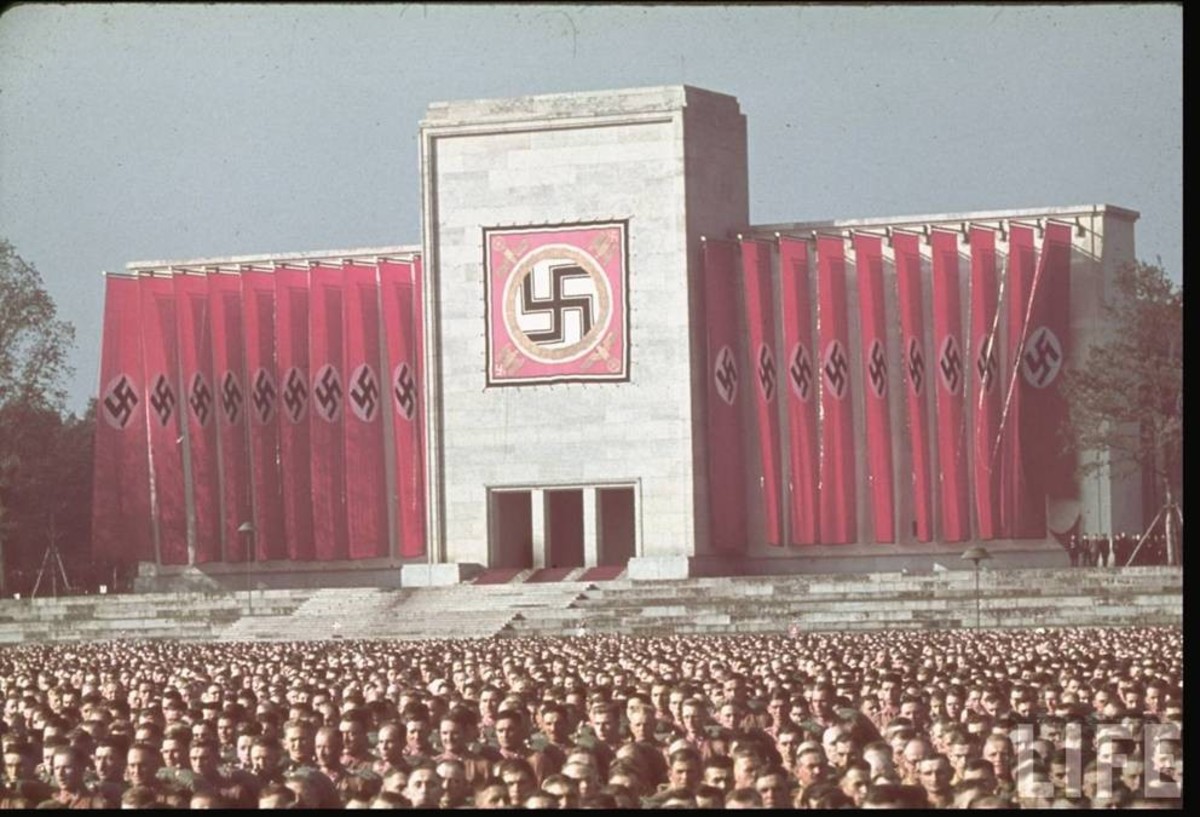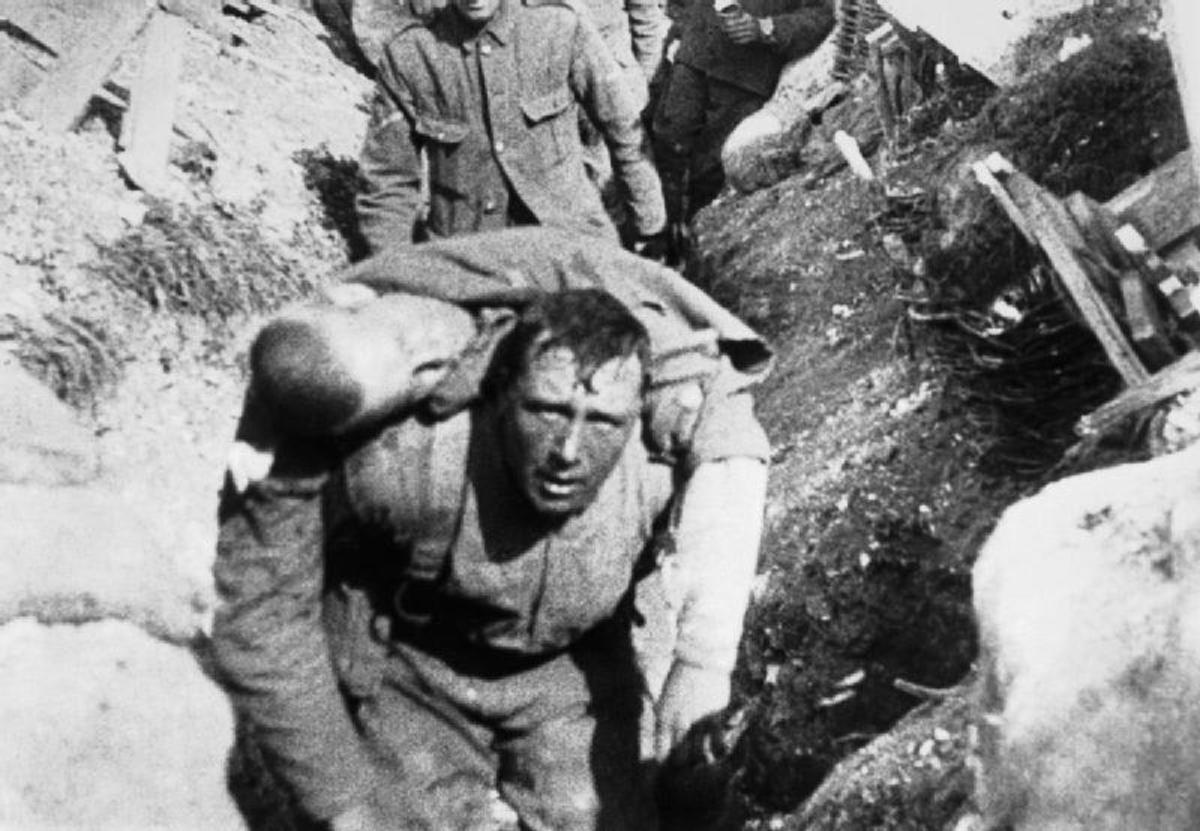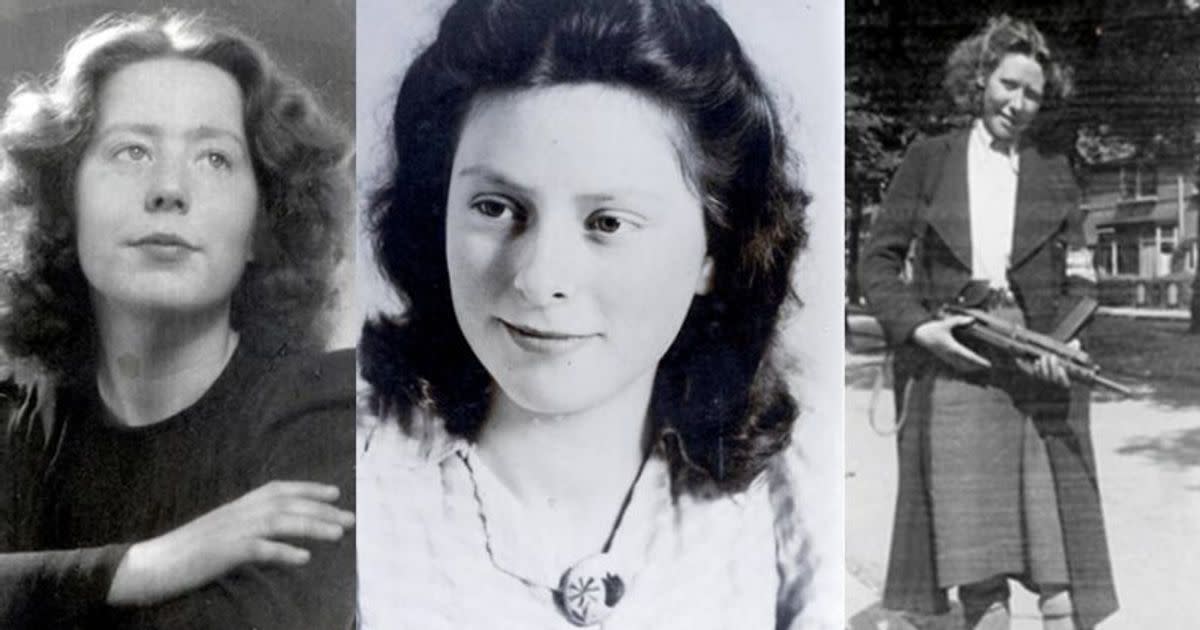- HubPages»
- Education and Science»
- History & Archaeology»
- History of the Modern Era»
- Twentieth Century History»
- World War II
Holocaust Denial: An Important Conversation about World War II
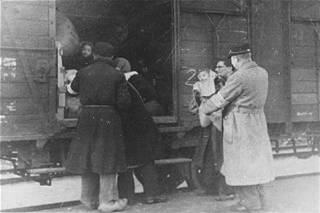
Abundant Evidence about the Holocaust
After reading “Secondary Sources on American Veterans, the Holocaust, the Concentration Camps,” a fellow Hubber and I considered the phenomenon of Holocaust Denial, why it exists, and what purposes it might serve. “arb” asked some important questions and in responding, I had to reconsider what I know about National Socialism, and my personal experience with an American Holocaust Denial organization, and the infamous British author and historian, David Irving.
“arb” wrote, “ There is something which troubles me in all of this. Is it really possible in today’s world, to still think that this was the best kept secret the world has ever known? Perhaps, I merely want to believe that by now, we all know the truth, the whole truth and nothing but the truth.”
You are right, for it doesn't seem possible that people would still not believe, after all the first person testimony, academic journals, museum displays, archival materials, numerous documentaries and films, and hundreds and hundreds, possibly thousands of books written about The Third Reich and its descent into barbarism.

An Incredibly Well Kept Secret?
“Is it really possible in today’s world, to still think that this was the best kept secret the world has ever known?” You make an excellent point and it does seem unbelievable that there are still people who deny the reality of the Holocaust. But there are people who still to not believe it actually happened. They tend to fall into one of two categories. One category is the full fledged Holocaust denier; they actually have an association and a publication. Their headquarters is in California, the Institute for Historical Review. They are not historians, they are not even bad historians. They are liars, deceivers, and racists.
Strong words, yes, and I would describe them that way based on a close examination of their literature and periodicals alone. However, I have met some of them in person. They occasionally tour publicly, sometimes with the British historian/Holocaust denier David Irving. About nine years ago they came to the Atlanta area and held a public meeting. I went so that I would always be able to speak from first-hand experience about who they are and what they promote.
Going to hear David Irving and the representatives of the Institute for Historical Review ended up being both an interesting and terribly depressing experience. Police were there for security and to maintain order because the ACLU and several other liberal groups were there to protest the IHR program. Quite a few reporters and photographers were there as well. The meeting room held 150 people. About 25 “curious” individuals were there and approximately 75 Deniers.

Institute for Historical Reviw and Holocaust Denial
They (IHR supporters) just like most other Deniers and Revisionists, describe Hitler as a strong and good leader who had been maligned and misunderstood; they admire him for taking a stand and trying to achieve racial purity. Not unlike the KKK, they believe and say some horrendously racist things against both black people and Jews. David Irving was in attendance as their guest speaker; at one-time early in his academic career, Irving was actually considered a pretty decent historian.
He is not a "complete denier," he is a "partial denier." Which I think may actually be worse. Not too many people will accept that absolutely nothing happened in the heart of Europe, that it was all a complete fabrication. But Irving is actually quite clever because he doesn't ask you to believe that. What he asks people to believe is that the numbers were greatly exaggerated. He clearly states that a several tens of thousands, maybe a few hundred thousand Jews perished, but there was no design or plan or intention to do so on the part of the Nazis. The forty-five minute presentation included maps of World War II Europe and some discussion of Allied and Nazi troop movements. (David Irving has proven to me a reasonable and credible historian when discussing the non-Holocaust related aspects of World War II.)
There was a question and answer period at the end of the meeting and a few questions were asked, mostly by those already convinced of the truth of Irving’s position. When it was my turn I asked a question, well, actually I made a statement. I explained that I was studying German history in a doctoral program and that I had spent over six months working in the National Archives in DC and another six months working in various museums and archives across the country. My research had discovered voluminous evidence to support the more normative explanation for the millions of dead - military reports, diplomatic reports, and thousands of photographs clearly established the torture, starvation, and murder (not death) of millions of Jews and non-Jews.
The American Liberation of Concentration Camps

David Irving - Historian and Holocaust Denier
Then I asked Irving how he would explain away such a preponderance of evidence collected by a variety of government agencies, American soldiers, foreign news correspondents and the military and diplomatic corps of numerous European countries. Of course I wasn't expecting to persuade him, but there were a lot of teenagers in the audience and they looked like they had been drug their by their parents who were true believers. I framed my statement and questions in the hope that they would begin to think and read for themselves and walk away from the IHR and its pernicious beliefs.
Irving responded by agreeing with me that the National Archives has tens of thousands of pictures of starving and dead prisoners, many of them Jewish. However, according to Irving, the Nazis did not murder or even mistreat any of those people; they simply incarcerated criminals and enemies of the state in camps, just like troublemakers are put in jail in America. He went on to explain that the deaths were caused by the American military who deliberately prevented the Germans from sending food supplies to the camps. Irving said that American and Allied blockade of German port cities had prevented the delivery of much needed supplies and that the United States was responsible for the unbelievably high death toll, because they had deliberately starved both camp inmates and innocent German civilians.
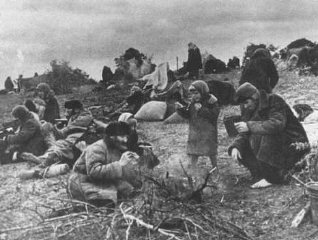
What 1000's of Documents, Letters, and Photographs Can Prove
This was patently untrue, because large numbers of Army After Action Reports and individual soldier’s testimony made reference to discovering large warehouses of food within miles of many concentrations camps. I also found no reports that mentioned starving German civilians; that did occur in some areas of Germany in the first few years after the war ended . However, according to Irving when American GIs arrived, they staged the piles of bodies and took photographs in order to turn the world against Germany.
Those photographs and hundreds of fake and manufactures After Action Reports were supposedly filed with government agencies in America so as to perpetuate a lie and deceive the American people. It became more and more clear to me that Deniers and Revisionists believe what they believe because they want to, and because it fulfills some need they have, not because their explanations and false history are based upon any rational argument and certainly not on solid evidence.
Two, the other group which minimizes or denies the Holocaust, are people who minimize everything that is extreme, intense, or terrible. They may do this about the Holocaust, but typically, they do it about a lot of other events, disasters, and wars. They seem convinced that almost everyone greatly exaggerates everything; that modern people don’t know how to endure difficulty or hardship. and in order to make their lives easier or more important, many people have a vested interest in making things sound and look much worse than they really are. This is actually a psychological problem which a small percentage of people have (certainly not restricted to Holocaust survivors alone), but the vast majority of Holocaust survivors, civilians observers, and military witnesses do not belong in this category.
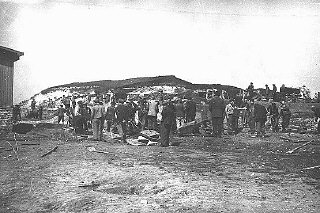
A Different Non-Fascist Approach to Holocaust Denial
So they believe that Holocaust numbers are greatly exaggerated, but they don't deny that Hitler and the Nazis intended to cause great harm to Jews, Gypsies, Slavs, Soviet soldiers, Polish intellectuals, Jehovah's Witnesses, homosexuals, and many other groups. What they do not believe and can not seem to come to grips with is the sheer scale, the enormity of the crime. But usually this attitude does not seem rooted in anti-Semitism or pro-German or Nazi feeling, but from the conviction that it is their personal responsibility to correct and minimize the tragedies that so many people often exaggerate.
These individuals believe that if a news magazine reports an epidemic in a Third World country, the numbers must be inflated tenfold. If there is a hurricane or a typhoon, several thousand people probably died, but certainly not twenty-nine thousand. When discussing slavery in America (or anywhere else in the world, for that matter), they will readily admit that it was "difficult" being a slave, but it probably wasn't actually nearly as oppressive and terrible as the stories and books make it sound. After all, everybody had to work really hard back then, black or white. poor or rich. They are convinced that times were just hard all the way around.

Books that Might be of Interest
Exagerations, Mis-statements, Falsehoods
Of course we know that there "are" exaggerations, mis-statements, even falsehoods that circulate in the popular media. On more than one occasion I have had someone say the reason they don't believe in anything anymore, is because of the unreliability of the media. They are convinced that everybody exaggerates everything, so to their way of thinking, they are simply and wisely taking everything with a grain of salt. Generally, these individuals do not wish to reconsider or examine their strongly held convictions. Their positions are not based on a lack of access to information, but on an emotionally or psychologically based tendency to interpret reality in a certain way..
I'm not sure if I have answered your questions adequately, "arb." I don't know that I will ever fully understand why people need to minimize the Holocaust, slavery, or the near eradication of Native Americans. But those attitudes do persist and as long as they do, I will feel compelled to do what I can to present accurate history and encourage students and people everywhere to carefully consider the attitudes, beliefs, and behaviors that lead, and could lead, to an atrocity, to a genocide, to a Holocaust.

Resolutely Facing the Almost Unbearable Truth
With regard to your second question: “Perhaps, I merely want to believe that by now, we all know the truth, the whole truth and nothing but the truth.”
I think many of us want to believe, fervently hope, that we are willing to recognize and come to moral and emotional terms with the truth. I think the Holocaust is much more than a historical event that occurred during World War II. After years of study I have come to believe that the Holocaust is a watershed event in modern history that understandably makes many of us uncomfortable and disturbed about the kind of society and civilization we have developed in the West.
I am no longer surprised that moral people, thinking people, realize that the Holocaust says something to us individually and something about us collectively. This kind of tragic and dark knowledge should be wrestled with, as should all evidence of mankind’s inhumanity and cruelty. It should disturb us and trouble our souls. Perhaps it is simply this; some people resent and resist doing the hard and painful inner work of grappling with these terrible events. Perhaps the desire to minimize, eliminate the moral weight, make the horror less appalling and emotionally burdensome, originates there.
I appreciate that you ask thoughtful and probing questions, "arb." I think perhaps I became a professor in part to grapple with these very sorts of questions, not that I could have articulated that sufficiently when I was younger and heading toward graduate school.

The Conversation Continues
"arb" wrote, Your first group does not concern me for they have a perverted agenda and must defend the lie less they suffer diminishing enlistment from the ranks of idiots hungry for any cause.
The second group begs, I fear, from the comfort of complacency. They live illusory lives, which, diminishes the responsibility or inconvenience that concern would impose upon their lives. To free themselves from the bondage of ignorance would interrupt the pursuit of materialism and it's glorious gratification.
Civil and social concerns rock their tranquil boats and endanger the fantasy of bliss and pleasure. Perhaps the reason history so often repeats itself. Of course every atrocity and tragedy is exaggerated. They constitute a blight on paradise!
Related Articles of Interest
- What Did Most Germans Know About the Nazi Concentrat...
Americans often assume that most German civilians knew next to nothing about Hitlers Final Solution and were unaware that the SS controlled and administered the concentration camp system. While the death camps were located in conquered Poland, hundre - Part II -- U.S. Soldiers Liberate and Enter Nazi Con...
American GIs discovered many concentration camps as they defeated the German army in World War II. U.S. soldiers were en route to military targets and were unprepared to address the human misery they found in the camps; most stayed for a few hours an - Grappling with Important Questions About Oppression,...
Pondering what the German people knew at the time about the Nazi goals and activities can lead to a number of questions which are relevant for us today. - Irena Sendler, A Heroine of the Holocaust
Four 9th graders captured the spirit of one woman’s courage and compassion. Their project inspired their community and, ultimately, attracted global attention. This is the life of Irena Sendler in Poland and the students in Kansas who told her amazin - Another Look at the Interaction of American GI's and...
Most World War II GI's were horrified and morally outraged by their experience in the concentration camps, however, moral outrage did not always lead to retaliation and abuse of German soldiers. Some GIs stressed the importance of the Geneva Conventi - What Most Germans Knew About the Nazi Concentration ...
In their oral history testimonies, letters, questionnaires, interviews, and journals American soldiers explain why they did not accept German protestations of ignorance and innocence. GIs from the 42nd, 45th, 71st, 88th, and 103rd Infantry Divisions, - The Lithuanian Holocaust - The Extermination of the ...
Pre-war Lithuania was home to up to 250,000 Jewish people and was a prodigious hub of Jewish learning. The capital of Lithuania, Vilnius, was referred to as the Jerusalem of the North. By 1942 only approximately 43,000 Lithuanian Jews were left alive - Civilians Murdered During the Holocaust
We are all familiar with the number Six Million, representing the best estimate of the number of Jews murdered by the Nazis during the Holocaust. We are less familiar, some of us unaware of the total number of people exterminated by the Nazis, 22,000




